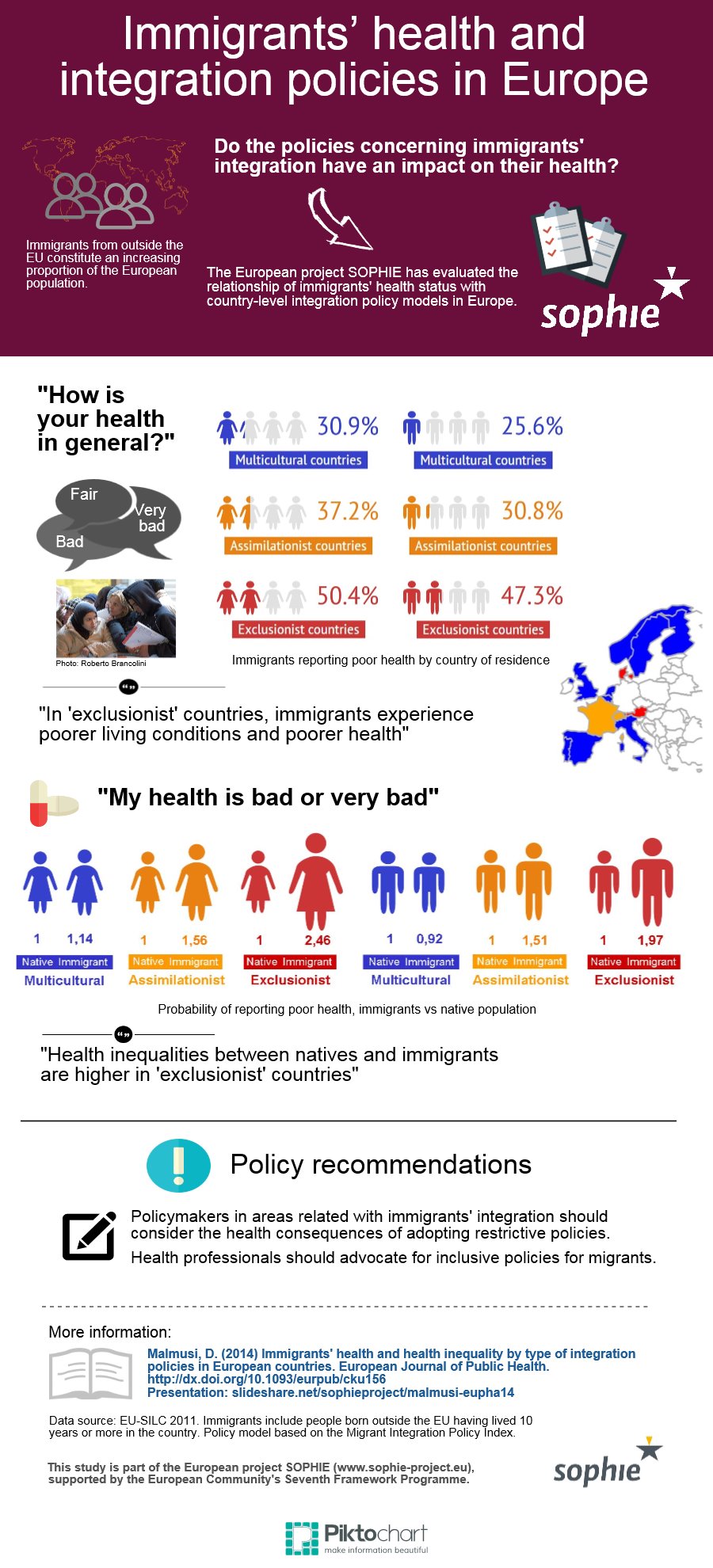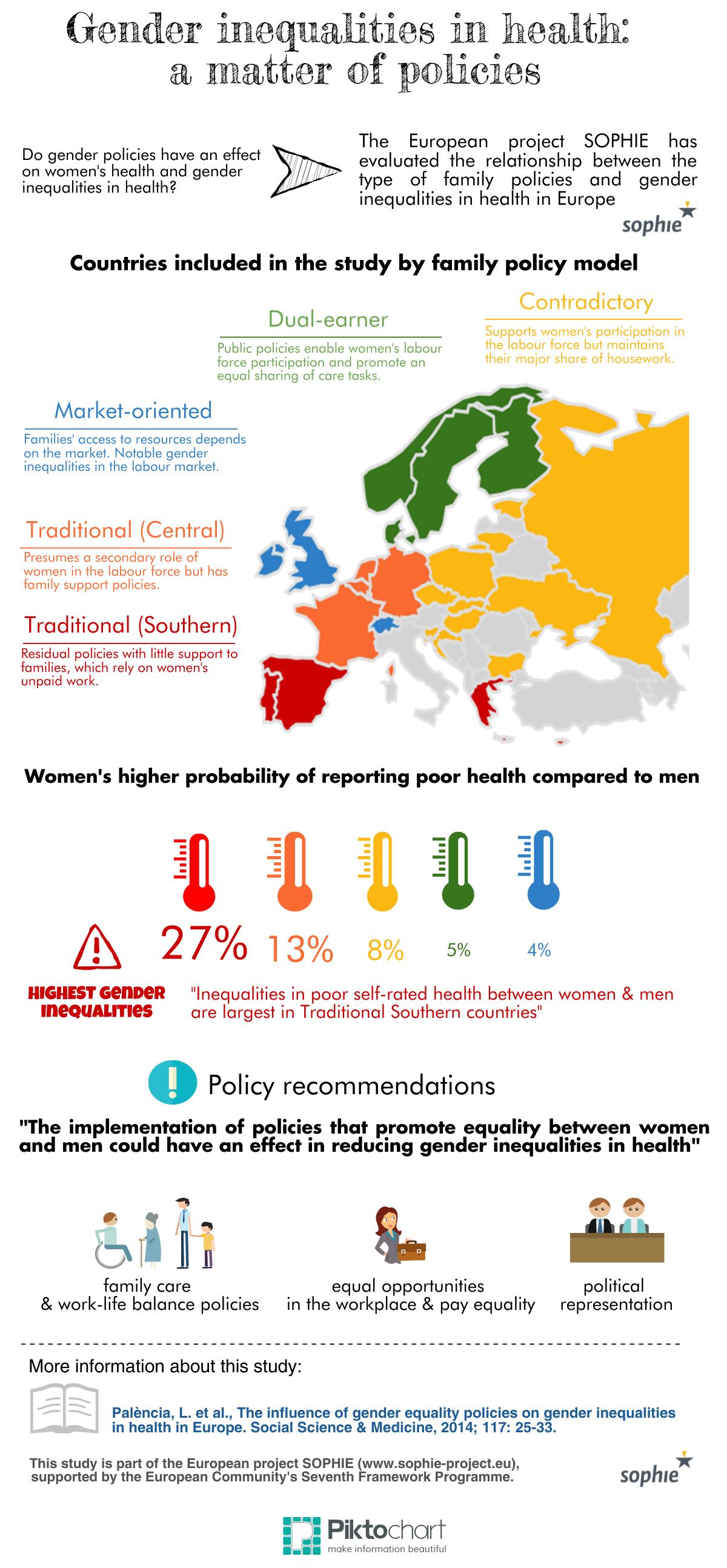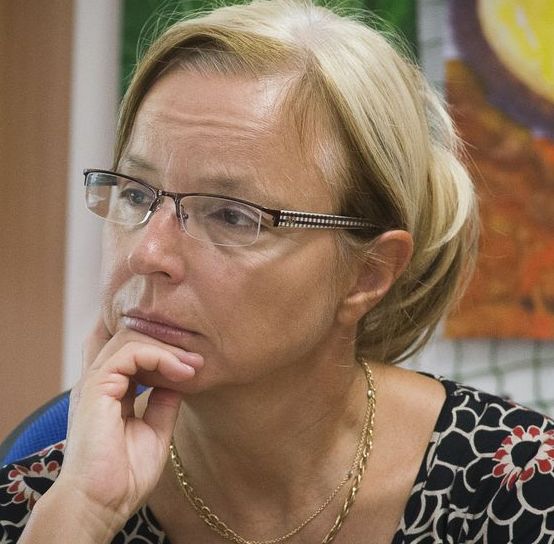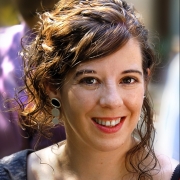| Newsletter №3 - December 2014 |  |
| The method Results People The picture The number News Readings | |||||
Dear reader, Currently, we are exploring new ways to disseminate our research. We have designed our first infographics based on two of our latest articles "Immigrants' health and health inequality by type of integration policies in European countries" and "The influence of gender equality policies on gender inequalities in health in Europe." Moreover, we would like to invite you to have a look to our first policy brief and our new guide "Incorporating intersectionality in evaluation of policy impacts on health equity".
|

|

|
|||
If the presentation does not display, click here |
If the presentation does not display, click here | ||||
 |
Dagmar Dzúrová, Prague
|
 |
Vanessa Puig-Barrachina, Barcelona
|
||
Dagmar Dzúrová is Senior Lecturer in Demography and Head of the Department of Social Geography and Regional Development at the Faculty of Science at the Charles University in Prague (CUNI). She is involved in SOPHIE as senior researcher leading the CUNI staff who participates in Built environment and Migration. What are the most challenging aspects of being involved in a European research project? |
Vanessa Puig-Barrachina is a postdoctoral researcher at the Agència de Salut Pública de Barcelona (ASPB). She started her participation in SOPHIE during her PhD at GREDS working on employment conditions and health inequalities. Now she is leading a case study on the Gender Budgeting Strategy in Andalusia (Spain). You are a young researcher, if you could write your own project, what it would be about? |
||||

In SOPHIE we are reviewing the health equity impacts of urban renewal interventions and its mechanisms. We can highlight positive impacts, as it has been the case for the interventions within the Neighbourhoods Law in Barcelona, but also the literature has identified unintended consequences: Are social mix policies able to influence residential segregation and health inequalities? Results from a literature review. |
|
||||
| In November, the SOPHIE team participated at the European Public Health Conference 2014, in Glasgow Mind the gap: Reducing inequalities in health and health care.
To summarise our participation, we have created two Storify stories with all the tweets generated during the pre-conference "How to tackle health inequalities? Results from four EU-funded projects" and the plenary session "Inequalities in the population: large scale interventions" both with participation from SOPHIE. Also, you can find here all our presentations and posters during the conference.
|
You can read our published articles, reports and PhD dissertations performed within the SOPHIE project.
Moreover, we keep up to date our list of communications in scientific conferences, which includes our presentations in Open Access. Through our Twitter account @sophieproject we recommend each week an article on the topics of the project. Find them out here! Our Links page has also been updated with information about international organizations and new ongoing European projects on health inequalities. |
||||
| About SOPHIE - Legal notice - Contact us | |||||
 |